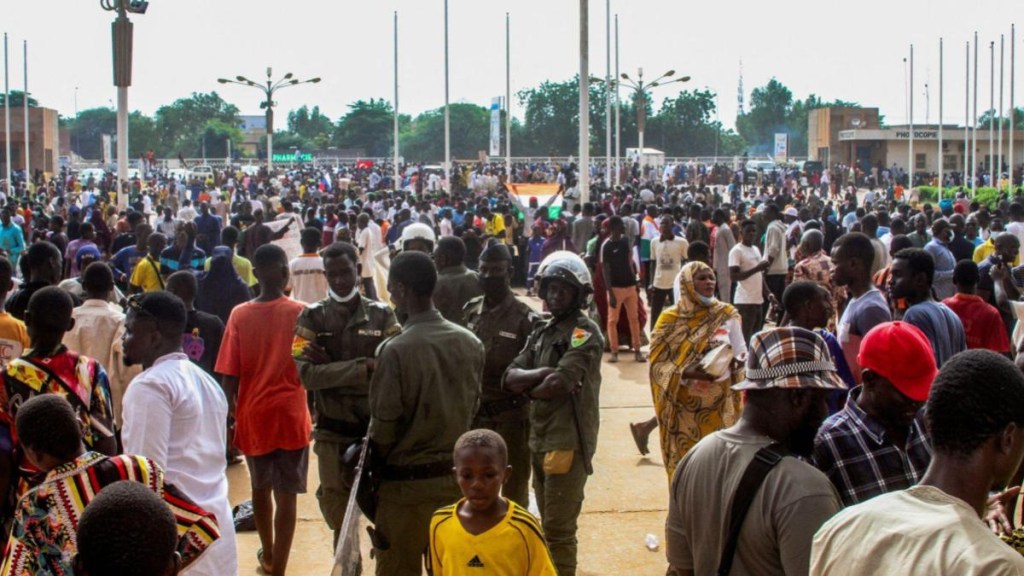Amid the unfolding situation in Niger, the Indian government has issued a crucial advisory to its citizens. For Indian nationals whose presence in Niger is non-essential, a strong recommendation to leave the country at the earliest has been put forth. The advisory, issued on August 11, 2023, takes cognizance of the current scenario and underscores a vital point: the airspace is temporarily closed. In light of this, those opting for departure through land borders are strongly advised to prioritize safety and adhere to stringent precautions.
Furthermore, the advisory extends its scope to those contemplating travel to Niger in the upcoming days. The advisory urges a reconsideration of travel plans until the situation attains a state of normalcy. Additionally, Indian nationals who have not yet registered with the Indian Embassy in Niamey are earnestly advised to expedite the registration process. In times of uncertainty, assistance can be sought via the emergency contact provided by the Embassy of India in Niamey: +227 9975 9975.
About the situation in Niger: all you want to know
Niger, a landlocked nation rich in uranium resources situated in West Africa, finds itself in a complex web of challenges. Historically plagued by military coups, economic struggles, and the specter of Islamist extremism, the nation’s recent upheaval marks the fifth coup since it gained independence from France in 1960.
The United States, concerned about the diminishing influence of Western powers in Africa, has advocated for the reinstatement of democratic governance. In a move reflecting this concern, security coordination and financial aid have been temporarily suspended. Echoing this sentiment, the Economic Community of West African States (ECOWAS), a regional coalition of 15 nations, has flexed its economic muscle by cutting financial ties and issuing a veiled threat of military intervention should the coup leaders not relent.
Interestingly, the stance of neighbouring nations adds more complexity to the situation. Mali and Burkina Faso, recently beset by Russia-backed coups, stand in support of Niger’s junta, a stance that diverges from the regional consensus. This backdrop provides a ground for diplomatic actions, as evidenced by a recent meeting between a coup leader and Mali’s Wagner-affiliated junta.
Efforts to negotiate the situation have extended to high-level diplomatic engagements. Acting Deputy Secretary of State Victoria Nuland’s visit to Niamey for talks of a “challenging” nature aimed to offer US mediation. However, this overture was not embraced by the junta.
Delving deep into the matter, the crisis in Niger is rooted in a military junta led by the presidential guard, which detained President Mohamed Bazoum on July 26. As details of this development emerged, the African Union sounded an alarm of an “attempted coup d’état.” In response, a wave of international condemnation ensued. Diplomatic efforts involving France, the United States, the African Union, and ECOWAS, among others, coalesced to pressure the junta into restoring President Bazoum to power.
Counter-Narrative
The counter-narrative was swift in its arrival. Merely two days later, Abdourahmane Tchiani, the head of Niger’s presidential guard, emerged on state television to declare himself the leader of a transitional government. This bold shift was accompanied by the suspension of Niger’s constitution, signaling a seismic shift in the nation’s democratic foundations.
The diplomatic stage saw heightened activity as France and the European Union withdrew substantial financial aid, mirroring a similar move by ECOWAS, which imposed economic sanctions. The United States, too, suspended US$100 million in financial support and paused security cooperation, while orchestrating a partial withdrawal of embassy personnel. Notably, approximately 1,000 US soldiers are stationed in Niger, largely deployed for counterterrorism efforts.
As the crisis deepened, ECOWAS issued an ultimatum, demanding the restoration of constitutional order by a specific date and threatening military intervention as a consequence of non-compliance. In response, Niger took the extraordinary step of closing its airspace. However, as the deadline passed, ECOWAS opted for continued deliberation, leaving the situation in a state of flux.
The ousting of President Bazoum, who assumed office through democratic means in 2021, aligns with a disconcerting trend of military interventions and political instability. The concurrent rise of Islamist extremism and the expanding influence of Russia have amplified the region’s turbulence.
The broader region bears witness to a series of coups. Chad and Sudan to the east, and Mali, Burkina Faso, and Guinea to the west, have all grappled with undemocratic leadership changes. This region is further burdened by the challenge of containing the rise of Islamist insurgencies. Notably, the United States has forged alliances with nations like Niger and Chad to combat this threat.
Impact on Uranium Reserves
The military coup casts a shadow over Niger’s significant uranium reserves. As the seventh-largest producer globally and a major exporter to Europe, Niger’s junta has chosen to suspend uranium exports to France. This decision directly impacts France’s civil nuclear industry, which relies on the mineral for power generation.
